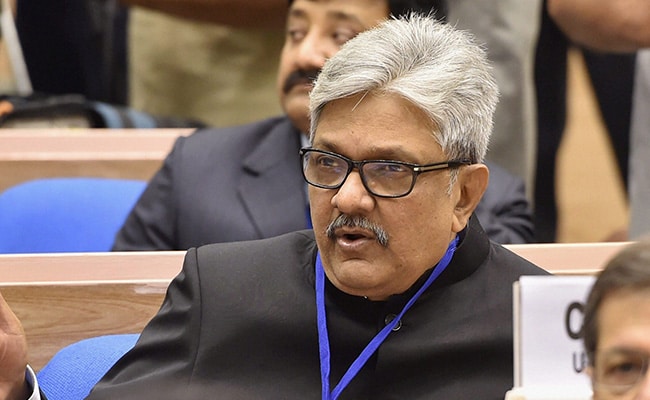
The Supreme Court collegium, or a group of five most-senior judges, met today to take a call on Justice KM Joseph's elevation to the top court that was rejected by the government in April. This is the collegium's second meeting to firm up its response to the centre's decision that has set up a face-off between the judiciary and the executive and has been described as an attack on the independence of the judiciary. Law Minister Ravi Shankar Prasad denies that the centre's decision had anything to do with the Uttarakhand High Court Chief Justice's 2016 verdict cancelling President's rule in the state. Mr Prasad calls it a legitimate exercise of the powers granted by the top court in several rulings.
Here are the top 10 updates in this big story:
At its meeting last week, the country's five top judges were learnt to have decided to draft a point-by-point rejoinder to the centre that questioned their choice. But it also discussed names of judges from three other high courts in view of what the court called, was the "concept of fair representation".
One of the grounds cited by the government was that Justice Joseph's elevation would increase the number of judges from the Kerala High Court to two though there were many high courts which didn't have a single judge in the top court's bench. The other was that Justice Joseph was not among the senior high court chief justices.
Chief Justice of India Dipak Misra's decision to convene the meeting came just a day after Justice Jasti Chelameswar wrote to him. The letter sought an early meeting of the collegium to enable them to reiterate its recommendation to elevate the Uttarakhand Chief Justice.
The letter from the Supreme Court's most senior judge next to the Chief Justice also outlined why he thought that the objections raised by the government to block Justice KM Joseph's promotion were not valid.
In early January, the group of the country's five judges had asked the government to appoint Justice Joseph and senior lawyer Indu Malhotra to the Supreme Court. The government acted on the second recommendation and appointed Justice Indu Malhotra but red-flagged the first.
It is not unusual for the centre to return the collegium's recommendation for appointment of high court judges. In 2016, the centre told parliament that it had asked the collegium to reconsider 43 names for the high court.
But it is rare for the government to return a recommendation for elevation to the Supreme Court. The only occasion when such a situation arose in recent years was when the NDA government blocked elevation of senior lawyer Gopal Subramanium in 2014.
The then Chief Justice RM Lodha, however, could not pursue the case because Gopal Subramanium withdrew his consent to be a judge.
If the collegium sends back a name a second time, the centre has no choice but to accept it. Already the Supreme Court is down to 24 judges as against the strength of 31, sanctioned by Parliament. Five more judges are slated to retire this year.
Former Chief Justice RM Lodha, one of the many retired judges who has worried about attacks on judicial independence, expects the collegium to reiterate its recommendation. "Obviously all the factors which were taken into consideration while sending his (Justice Joseph's) name I think remain, they exist," he told reporters recently.

